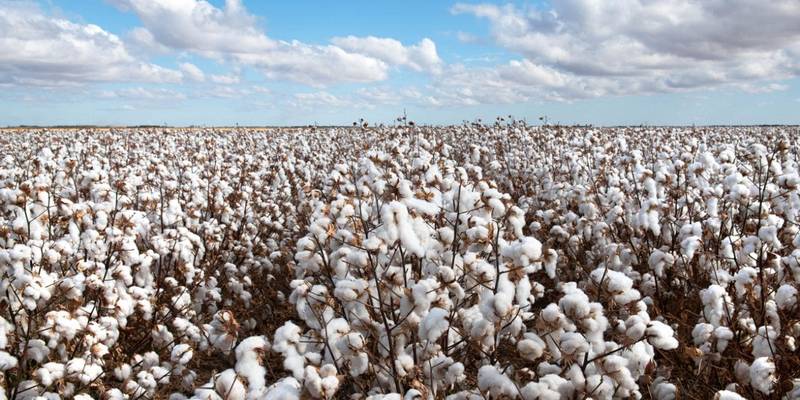This year, the state’s cotton production is predicted to be at its lowest level ever with only 3.5 lakh bales produced.
In addition to a substantial decline in production, the Cotton Corporation of India (CCI) officials and commission agents have stated that the crop is of much lower quality, with both brightness and fiber length being lower than previously observed.
6.45 lakh bales of cotton were produced in the state last year, down from 10 lakh bales in 2020–21.
Due to the pink bollworm’s broad onslaught, cotton production has decreased.
“This is the peak time of arrivals, but today, only 80 quintals of cotton arrived in the mandi against 800 quintals a day around this time in the past,” said Rajnish Jain, a commission agent for cotton from Maur.
Due to the gap created by the lower supply and higher demand for cotton this year, cotton growers are receiving a premium price of Rs 8,500 per quintal.
According to reports, the CCI has not bought any cotton from the state since private traders are paying about Rs 2,000 more per quintal than the MSP.
The primary causes of the production decline this year, according to cotton growers, Agriculture Department officials, and the CCI, were the reduction in cropped acres and attacks by pink bollworm and whitefly, which led many farmers to plough back their fields.
However, they said that the poor quality of the crop was also a result of the widespread unlicensed marketing of cotton seeds by some agents located in Gujarat.
It has been reported that during the height of electioneering for the Assembly elections, these agents set up mobile stores in their own vehicles and sold the seeds to farmers in the cotton belt.
According to a senior officer in the CCI, the average length of the fibre entering the state’s mandis was between 25 and 26 mm, as opposed to the required long staple fibre length of 27.5-28.5 mm last year.
The cotton ginning business, meantime, is being severely impacted by the decline in production and rise in pricing.
There are 81 cotton ginning factories in the state, and the majority of them have stated they are unable to begin production since raw cotton is not readily available.
High-quality seeds must be obtained, and additional land must be put under cultivation, according to Bhagwan Bansal, patron of the Punjab Cotton Factories and Ginners Association. The conversion of many units into rice mills is being demanded. The state’s ginning industry will go out of business if preventive measures are not implemented, he said.

